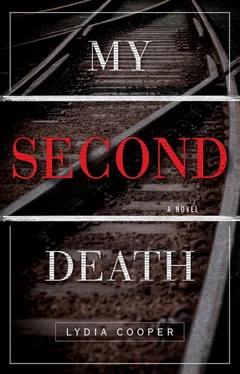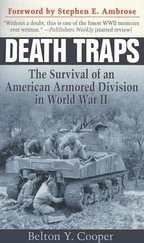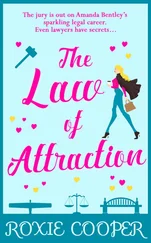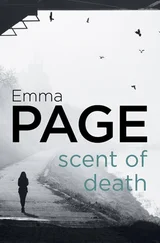My fingers move across the keyboard, opening new searches. Websites devoted to butchering. The correct way to hold a hunting knife. Directions for killing and draining an animal. Slit the jugular. Or sever the spinal column at the weak area where it joins the skull plates. My fingers go to the back of my neck, press against the skin at the base of my skull.
The thing is, I don’t even know what the point of that message in my mailbox was. What was I meant to figure out when I went to that house? Who killed the man, or how he was killed? The how is easier. At least, it’s easier for me to remember the look of that skin, the shredded edges as if a serrated blade had chewed through the skin. Of course it would be, for a person of my proclivities and neural condition. How would I possibly be expected to deduce human motivations? So I think this is what I’m meant to see and understand — the killing itself. But that seems so pointless. What possible motivation could a person have for tempting me into the dark recesses of my broken mind with a trail of once-human breadcrumbs?
I wonder if I could kill a person. An odd thought. It’s one thing I’ve known since I was ten, that I could kill a person. But not like this. Not using my hands to wield their dooms, not putting my fingers on the body and carving into it. The thought of that — a part of me does want to know what it feels like, to slice through skin like my mother slices through a pink ham, the thick meat ripping at the toothed knife blade. I shiver. And then I realize that I don’t want to kill anyone. I want to feel what it is like, but I don’t want to wake up the next morning knowing who I am, knowing what I’ve done, for the rest of my life. I already know how it feels to walk everywhere, to run, to sleep, with the weight of it like a homunculus crouched inside your chest. I don’t think I’ve inhaled fully since I was ten years old.
I slam the laptop shut and stand up. It’s a bit of a relief, actually.
To know there are limits to my depravity.
The house on Allyn Street is a clapboard two-story, built in the 1950s when the city burgeoned with textile and tire factories. The Chevelle’s idling engine vibrates through the coiled springs supporting the driver’s seat. My hands grip the wheel, even though the parking brake is on. My knuckles are white. I swallow and close my eyes. Not looking at the house, at the boarded-over window. Not thinking about what lies inside that room, on that narrow metal-framed bed.
I felt strong, realizing that I didn’t want to kill anyone, that staring at the mutilated body didn’t send me hurtling past logic and the ability to think in the future tense about consequences. And because I felt strong, I came back. But now my body is undergoing some strange physiological reaction.
When I got out of the psych unit, the shrink who put me on a low dose of anti-anxiety medication didn’t wait long enough. The new meds, combined with an antipsychotic that hadn’t cleared my bloodstream, sent my nervous system into overdrive. I felt my brain dissolve. Ants crawled through my veins. My blood went sluggish and my muscles got lax and heavy, but my skin shivered and my heart raced. I felt like a hummingbird trapped in a polar bear’s body.
I feel like that now. Like metal toothpicks prick up and down my arms. My skin twitches but the muscles are dull, leaden. I want to know who he is, the man handcuffed to the bed in the room with the Victorian bureau and the dusty floorboards. I can’t move. Can’t slow my heartbeat.
Well. I’m here anyway. I reach for the door handle. Anything that happens, from this point forward, I have done by opening this door. I know this is true, but nothing feels real. Even the air when I climb out has the weightless blank quality of a dream.
The house’s side door is still ajar and the dark slit between the wood slab and frame makes my stomach feel strange, like I might throw up or start laughing too loudly. The house is like a cracked eggshell, all the ripe insides turning rotten.
Afternoon sun shines warm on the side of my face. When I close my eyes briefly it turns my eyelids the color of pink Zinfandel. I shouldn’t be here, not in daylight. Shouldn’t be here at all.
I open my eyes and pull the door open.
The house is dark, the thick stench of decay so strong that the air feels soupy. Instead of heading for the stairs I look around the first floor. A few empty rooms at the front of the house. My breath echoes faintly. The house feels still, frozen.
Empty.
The kitchen windows are all boarded over, leaving only dark behind. A tar-thick black that presses against my eyes. I get out my cell phone and touch the screen, shine the small bluish light around. The kitchen is full of shadows, gaps in the counter and cupboard blocks where the sink was removed, the refrigerator pulled out. The holes look like the result of some monstrous botched surgery, empty electric outlets staring up at me like black eyes. When I take a step into the kitchen the linoleum crackles under my sneakers like cornflakes. A gray blanket. I kneel down, careful to keep my fingers off the blanket. With the edge of my cell phone, I nudge it. Drag out a corner. It’s just a blanket left balled-up in the corner. When the fabric loosens it releases a sweet rotting smell like old urine. The stink is as sweet as caramelized sugar but pungent, spicy. My eyes water.
A rustle. A small plastic baggie in the folds of blanket. When I move the blanket I see a twist of tin foil with a lump of caked yellowed gunk that looks like rosin, a faint powdery residue in a halo around it.
In the corner something glints in the watery glow from my cell phone. I go over and kick it lightly. A backpack, but not like a college student or a hiker would carry. It’s pink with shiny appliqué pieces, a cartoon picture of a black-haired girl. Some cartoon character for kids. Stephen watches cartoons sometimes and I have seen it briefly when he flips channels. The name comes to me then: Dora the Explorer.
I look around. No one would have a kid here, surely. Would they? Who would leave drugs and a kid’s backpack? Someone who left in a hurry. Obviously.
There are no more rooms on the first floor and no more objects to poke at, so I head upstairs. The stairwell closes around me like crushed velvet. I run the back of my hand against the wall to keep my balance in the stygian dark.
The first door is still locked, the second one open. When I click on my cell phone and shine it around I see the bed, but for a second I think the man is gone. Then I see the white glare of the cell phone’s light glinting off a handcuff, the bloated blued-white of skin, and I realize that he is still there. But someone has dragged a sheet over the corpse.
The smell in here is rancid, so thick that it coats the inside of my mouth and when I swallow I can taste rot.
Dark stains in small coin-shaped spots on the sheet. When I shine the light on them they look like oil, not blood. I think the blood has mostly drained from the body. Maybe a spleen burst open from the pressure of bloat, or some other organ gave way to decomposition.
I cough a little and bury my face in the crook of my arm. I think about the blanket downstairs, and the backpack. The contradictory treatment of the body on the bed — someone shackled him and skinned him; someone covered him with a sheet.
There are signs of habitation here, but the detritus below, the body in the bed, and the sheet over the corpse point to different people. To someone dark and rotting of soul, and to someone childish, scared. Someone unable to call the cops but driven by a desire to put the ravaged body to rest. Someone human.
According to the missing persons report, James A. Sims was mentally disturbed and had no fixed address. The unlocked door and the condemned sign on the front of the house must mark a temporary crash pad for transient people. Or, did mark it. Until someone — one of them? — turned it into a deranged artist’s studio.
Читать дальше












